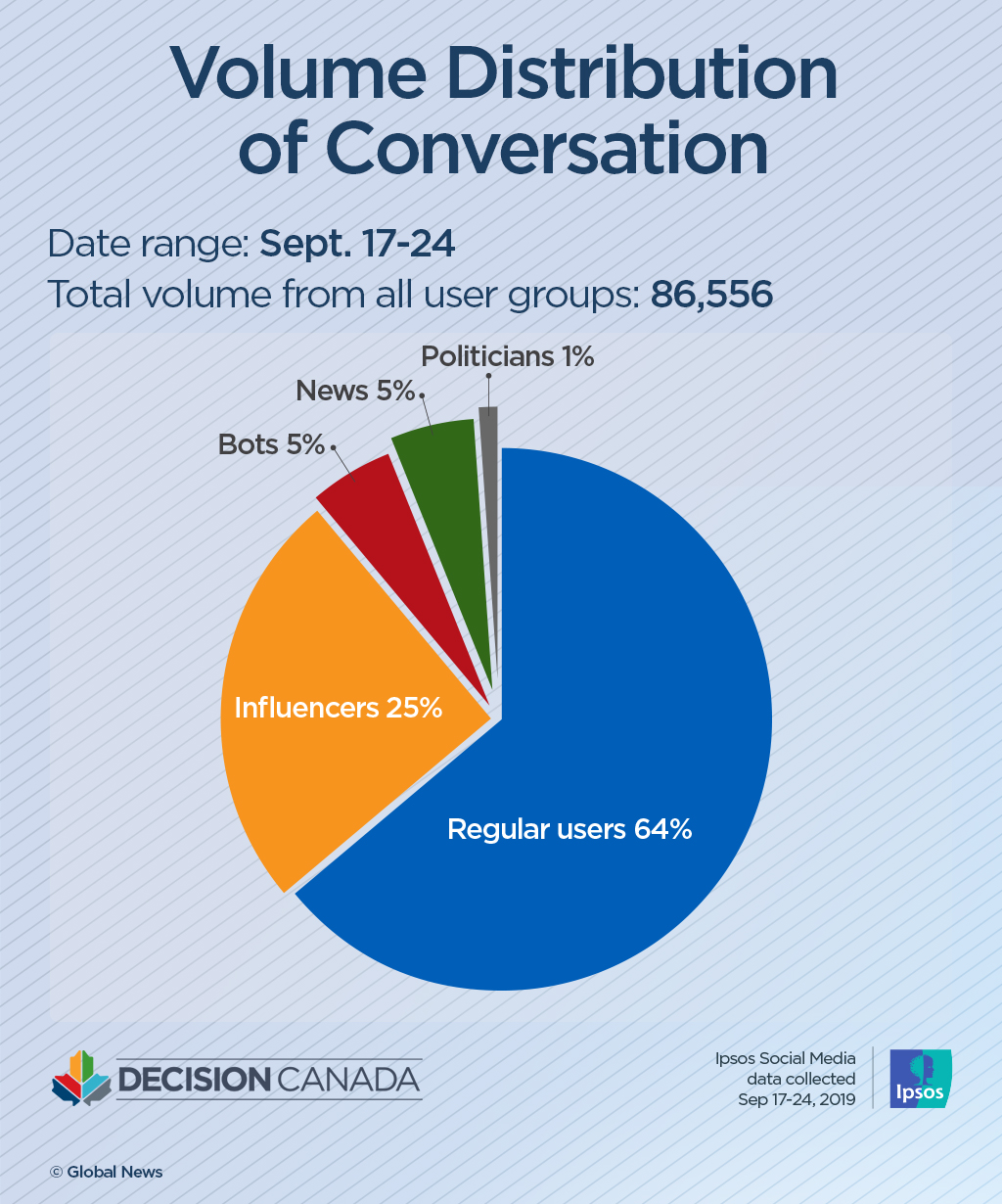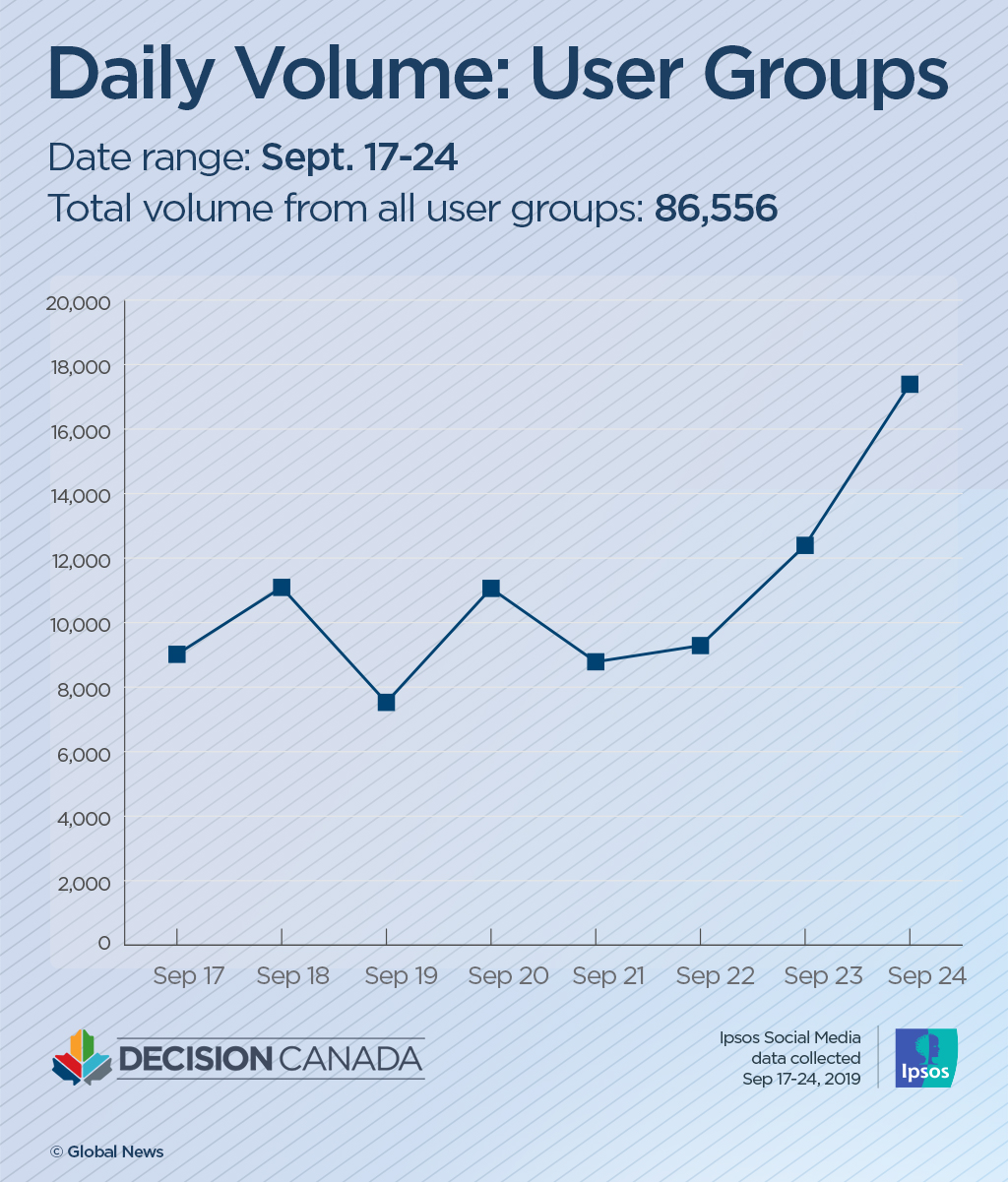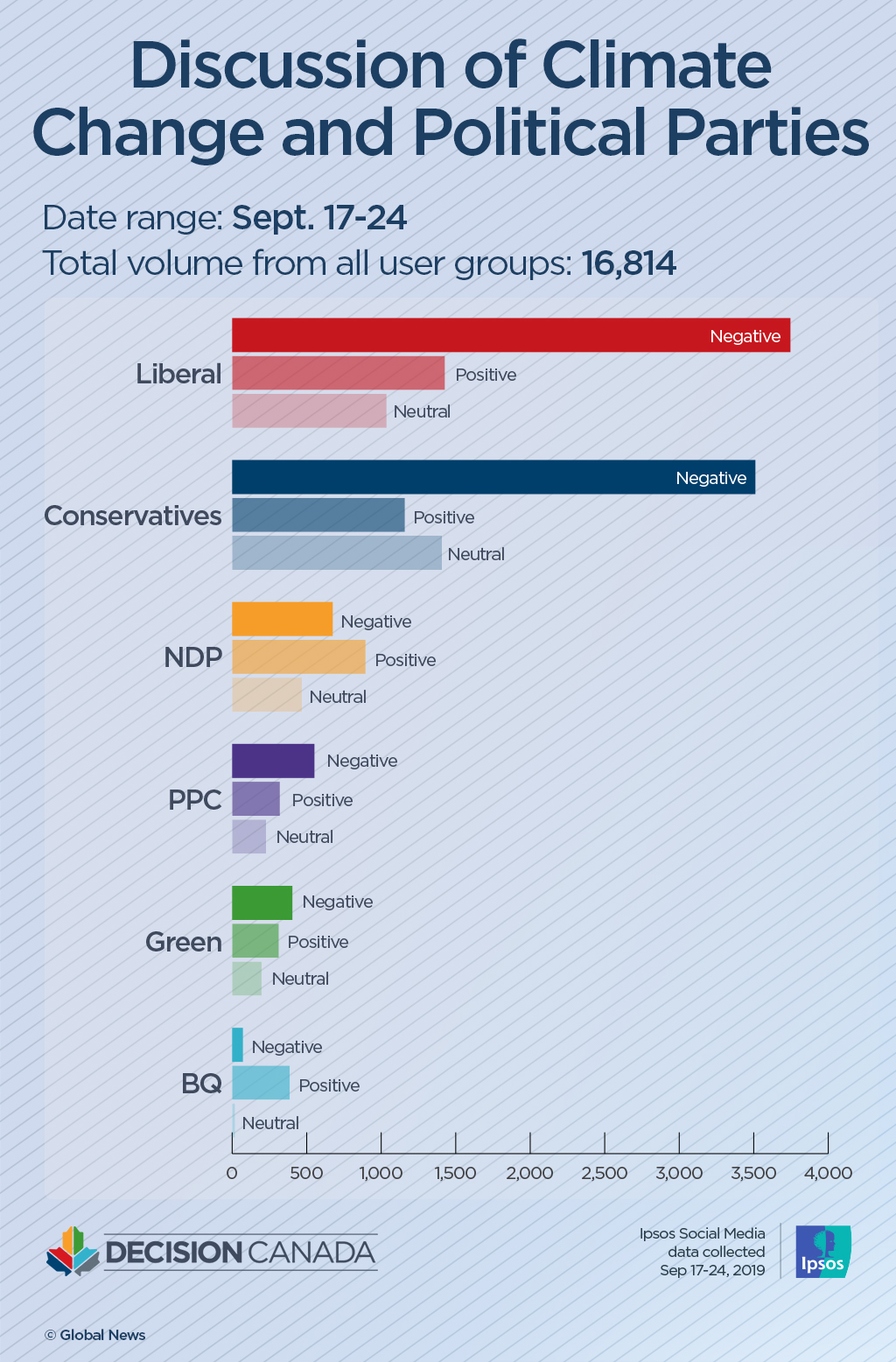Everyday Canadians are leading the conversation about climate change on social media, while politicians are trailing behind all other user groups — including the news media and bots — in discussing the issue, according to an Ipsos tool that measures standing trends on social media.

The pollster compiled its data using Canadian Political Atlas, a tool that categorizes messages on Twitter, Facebook and other social media by topic-related keywords and geotagging. The tool measured 86,556 messages about the environment from Sept. 17-24, and categorized them by sentiment.
The data shows regular users carried 64 per cent of the conversation about climate change on social media from Sept. 17-24, while influencers made up 25 per cent of the conversation.
Bots and news media accounted for only 5 per cent each of the total conversation, while politicians made up just 1 per cent, according to Ipsos.
The tool tracks only elected politicians, but Ipsos says unelected candidates likely follow the same trend.
“There’s been a lot more online chatter around climate change and the environment, and I think that’s driven by external events that haven’t necessarily come up in the elections,” said Gregory Jack, vice-president of Ipsos Public Affairs.
Climate change is the third-most important issue for Canadians during this election campaign, behind health care and affordability, according to a separate Ipsos poll conducted exclusively for Global News.
Jack says regular users and influencers appear to be following the trend lines and discussing the environment in unison.
“Politicians aren’t discussing nearly as much,” he said.

Get breaking National news
Canadian leaders have been largely responding to Liberal Leader Justin Trudeau‘s brownface scandal over the last week, in between carefully scripted campaign stops.
Meanwhile, Swedish climate activist Greta Thunberg appears to have helped propel the conversation in Canada, based on a day-by-day analysis of social traffic.
The teenager from Sweden helped rally young people for a global student-led protest about climate change on Friday, Sept. 20. She also delivered a blistering rebuke of world leaders at the United Nations on Monday, Sept. 23.
“This is all wrong. I shouldn’t be up here. I should be back in school on the other side of the ocean yet you all come to us young people for hope,” she told leaders at the UN on Monday.
“How dare you.”
WATCH: Greta Thunberg blasts world leaders at climate summit

Social traffic about climate change spiked by more than 3,000 messages when the protest and the speech happened, the Ipsos tool shows.
The conversation peaked on Tuesday, Sept. 24, amid two major climate-related stories: the fallout from Thunberg’s UN appearance, and the Liberal Party’s announcement of its net-zero carbon emissions plan for 2050. Ipsos tracked 17,390 messages about the environment that day, an increase of 5,004 over the previous day.
Sept. 24 also saw more than twice the volume of the quietest day, which occurred on Thursday, Sept. 19.
The Ipsos tool found that the political parties were discussed in 19 per cent of online conversations about the environment over the last week within Canada.
Sentiment was mostly negative toward the Conservative Party and the Liberal Party on the issue. It was mostly positive toward the NDP and the Bloc Quebecois, and slightly negative toward the Green Party and the People’s Party of Canada.
Ipsos’ Political Atlas uses keyword recognition to measure sentiment toward a topic. It does not account for what the various party leaders are saying at their campaign stops, although it does include what they post on their social pages.
“Social media is not necessarily reflective of the broader conversation that’s happening in the media,” Jack said.











Comments
Want to discuss? Please read our Commenting Policy first.